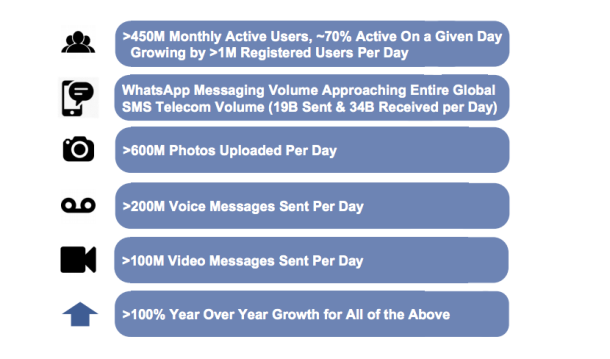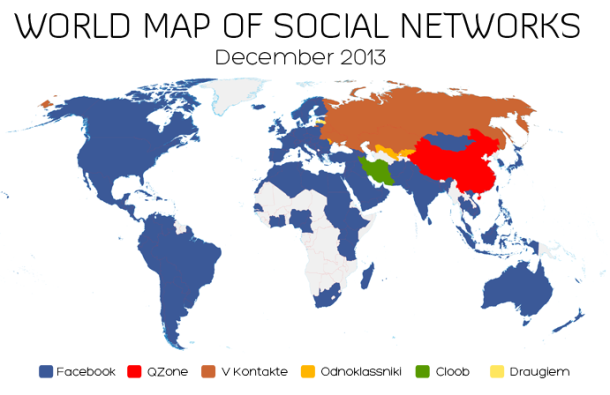Ivan Petkov
Years ago, when the IM (instant messaging) applications or "chat programs", to put it plainly, appeared there was a joke that they had been created by developers in order for them to be able to communicate with their friends. Those programs, having different forms and different technical tools and data transfer protocols, had become extremely popular because they had connected millions of people around the world. This cultural phenomenon had made young people spend hours in front of computers, then not so young people started doing the same, and many couples had met through chat programs. Virtual communication was offering a sense of unknown freedom. At the height of the popularity of these applications, America Online (AOL) bought ICQ, the most popular chat program at that time, for the sum of 407 million dollars.
In the following years another application, namely the omnipresent Skype, had made progress and became so popular that it had attracted the attention of active Internet users. The innovation brought by Skype was free calls.
There was a lull when it seemed that social networks would replace chat applications. The mobile revolution had given them a second life. New characters appeared as well as new popular applications that had managed to attract millions of users again. This second wave of applications has been able to stir the market and, in recent years, we have witnessed transactions and struggle for their acquisition, unprecedented in size.
The top news of the week is that Facebook has bought the WhatsApp application for 19 billion dollars. Yes, you read that right! The amount is unprecedented. The largest social network will pay 4 billion dollars in cash and 12 billion dollars in shares. Over the next four years, it will pay an additional 3 billion dollars in shares. In other words, Facebook will give 7.9% of its shares for the purchase of WhatsApp. Moreover, that is not all! Hours after the announcement of the deal, it became clear that a short while earlier Google had made an offer of 10 billion dollars, which had been rejected. Let's take a minute for exclamations and assimilation of the numbers...
What drives companies to compete in their desire to acquire such kinds of applications? "WhatsApp is going to connect 1 billion people with one another," says CEO and founder of Facebook Mark Zuckerberg. That is why the service is so valuable. Facebook itself has more than 1.2 billion users.
Analysts estimate that each of the 450 million active users of WhatsApp cost Facebook about 42 dollars. However, accounting for the fact that a significant number of those users are already using Facebook, the "cost" of the newly acquired users significantly increases. It is obvious that the social network does not buy popularity and users or, at least, it does not do so making such detailed calculations. In 2012 when Facebook bought Instagram for 1 billion dollars, all were wondering whether the new owner would take over the application, thus trying to merge Instagram users in its network. This did not happen and Instagram popularity had increased by as much as 23% in one year alone. The intentions announced by Zuckerberg in relation to WhatsApp are similar, namely that the application will be developed separately from the social network. Moreover, Facebook has its own chat client, which is very popular. However, the reason for the payment of such a huge amount is not the chat service alone!
 Users of the application send nearly 19 billion messages a day, which approximates the volume of all SMS messages sent through the networks of all mobile operators in the world. This type of communication is to displace SMS messaging. In addition to a new service, Facebook acquires a new channel for advertising! This is certain. The shift to mobile advertising is the No.1 purpose of the social network. For a long while, investors had criticized it for its inability to use its popularity among mobile users. In 2013, Facebook was able to reverse the trend and intervene in this growing market. Seen in terms of advertising volumes and billions of dollars that pass through these channels within just one quarter, the amount paid by Facebook for 450 million users to whom it can offer advertisers’ messages no longer seems so high. However, it remains to be seen whether this will happen.
Users of the application send nearly 19 billion messages a day, which approximates the volume of all SMS messages sent through the networks of all mobile operators in the world. This type of communication is to displace SMS messaging. In addition to a new service, Facebook acquires a new channel for advertising! This is certain. The shift to mobile advertising is the No.1 purpose of the social network. For a long while, investors had criticized it for its inability to use its popularity among mobile users. In 2013, Facebook was able to reverse the trend and intervene in this growing market. Seen in terms of advertising volumes and billions of dollars that pass through these channels within just one quarter, the amount paid by Facebook for 450 million users to whom it can offer advertisers’ messages no longer seems so high. However, it remains to be seen whether this will happen.
Apart from the wave of advertisements, WhatsApp current users fear interference in their personal data on the part of Facebook. One of the biggest criticisms towards the social network is connected precisely with these data and the inability of users to effectively protect them by showing them only to selected people. By acquiring WhatsApp, Facebook will have access to the telephone numbers and messages of 450 million users. So far, there have been no advertisements on WhatsApp and its users have not been required to enter personal data to use the service. The application was a paid one. All this is about to change.
Facebook project consists of an ambitious 10-year plan through which the social network will connect the whole world. The first steps include separate applications like Instagram and WhatsApp. Facebook is developing its own application for news called Paper. According to Facebook, two thirds of the population in the world is not connected. Zuckerberg's ambition is to provide access to a broadband fast Internet connection to each inhabitant of our planet.

Competition